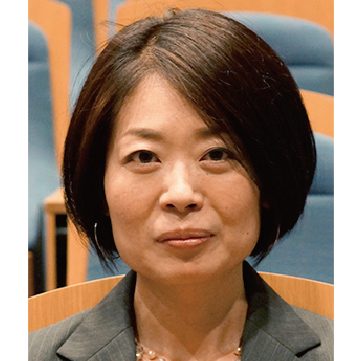
Misao Fujita
PI
- Position
- Professor
- Research Field
- Bioethics
Research Overview
Bioethics is an interdisciplinary field of research dealing with âethical issuesâ that cannot be judged by
traditional values, which arise as the advancement of science and technology. Ethical issues, such as
whether human embryos may be created from human stem cell-derived artificial gametes, conditions in which
we need moral considerations for human brain organoids, etc., which the society would face in the future
have to be discussed in advance. Furthermore, bioethics considers how rules and procedures should be
implemented to conduct research appropriately. For the advancement of science and technology and to be
trusted by society, it is essential to study these ethical issues and hold open discussions in society.
Therefore, in our laboratory we are engaging in the following activities:
1. Theoretical research: We will extract and organize issues to be considered from an ethical point of
view, such as literature research on the moral status of human embryoids and human brain organoids, and
deepen philosophical discussions.
2. Empirical research: Based on the findings of the theoretical research, we are conducting surveys on the
attitudes of the general public and scientists toward human stem cell-derived artificial gametes, genome
editing of human embryos, and so forth.
3. Policy proposals: We will provide points of discussion and issues extracted from the theoretical
research as well as the results of empirical research to the Cabinet Office and the Ministry of Education,
Culture, Sports, Science, and Technology to implement regulations, and aim to reflect the opinion of the
people and researchers in further discussion.
4. Outreach activities: We will try to initiate social discussions by disseminating the research results
widely across society. We will deploy these research works by collaborating with other scientists at our
institution, and aim to build a new research model that combines humanities and science.

Figure 1: Illustration of the artificial gametes production research used in the attitude survey.

Figure 2: Illustration of research on genome editing in human cells used in the attitude survey.
Publications
Fujita, M. and Tabuchi, K. (2019). A rebuttal to Akabayashi and colleaguesâ criticisms of the iPSC stock project, Journal of Medical Ethics, online first.
Sawai, T., Hatta, T., and Fujita, M. (2017). The Japanese generally accept human-animal chimeric embryo research but are concerned about human cells contributing to brain and gametes, Stem Cells Translational Medicine, 6, 1749-1750.
Sawai, T., Hatta, T., and Fujita, M. (2017). Public attitudes in Japan towards human-animal chimeric embryo research using human induced pluripotent stem cells, Regenerative Medicine, 12, 233-248.
Fujita, M., Hatta, T., Reina, O., and Akabayashi, A. (2016). The current status of clinics providing private practice cell therapy in Japan, Regenerative Medicine, 11, 23-32.
Ikka, T., Fujita, M., Yashiro, Y., and Ikegaya, H. (2015). Recent court ruling in Japan exemplifies another layer of regulation for regenerative therapy, Cell Stem Cell, 17, 507-508.
